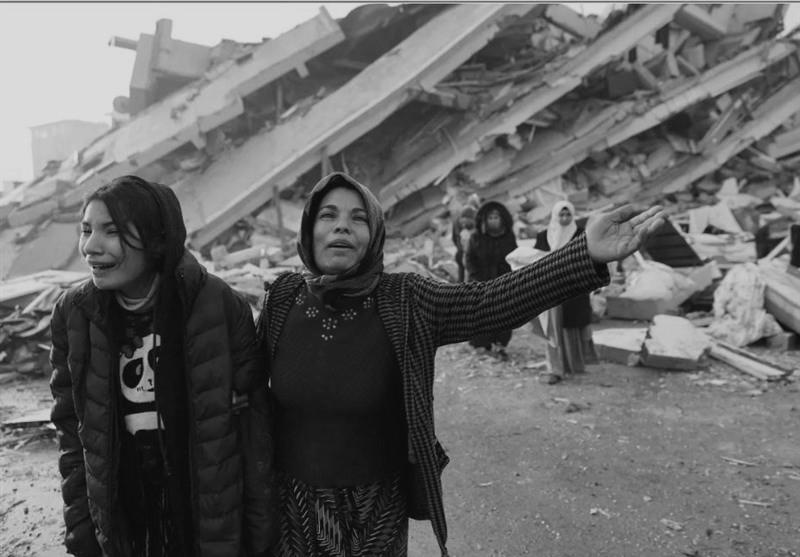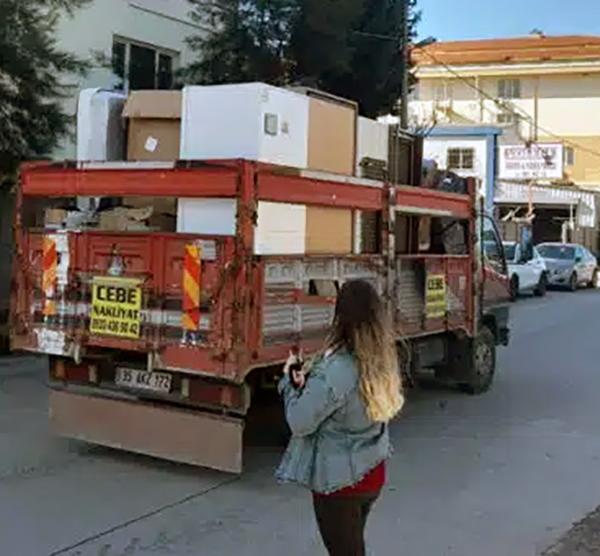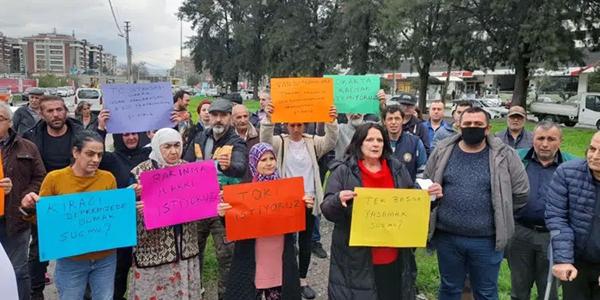
Atrocities of the state in the aftermath of the earthquake in Turkey
The whole world turned its eyes on Turkey and Syria when on Monday the 6th of February an earthquake killed tens of thousands, injured even more and devastated the cities of the region into rubble. It became obvious that the old regimes were unable and unwillingly to provide neither the needed safety standards and regulations in construction, nor the necessary aid after the natural disaster. Now the old state is evicting the victims of another earthquake, centered in the Aegean Sea, close to the Greek island of Samos, that hit Turkey in autumn 2020, in order to make room for the victims of the recent earthquake.
The Samos earthquake or İzmir earthquake that occurred on 30 October 2020 most heavily affected the Turkish city of İzmir. More than 100 people died, more than 1,000 people were injured and more than 700 buildings collapsed, only in this single city. In the city’s district Bayraklı the AFAD (Afet ve Acil Durum Yönetimi Başkanlığı; Disaster and Emergency Management Presidency) erected and runs a container city for those who lost their homes. That is now two and a half years ago. But the 2020 earthquake victims until now had to live in the only twenty-one square-meter containers, that are heating up extremely in summertime. Additionally, instead of finding a proper solution for those who lost their homes such a long time ago they now had to face eviction by the police, as reported by the democratic newspaper Yeni Demokrasi.
482 people, whose houses haven been destroyed in 2020, were living in the containers. Notifications were sent to all but 10 families and they were advised to leave the containers, because it was decided to replace them with the victims of the disastrous earthquake from 6th of February. With the expiration of a one-week period, the earthquake victims were evicted by police. In the morning hours, the riot police came to the area and forced the people to leave. One of the forcibly evacuated said: “God damn it […] they don’t take care of me. They throw me out on the street alone. […] All the police in front of my house. I have nowhere to go.” The belongings of the people were taken into custody or looted, as some said, by the AFAD.

Having not been provided with an adequate safe place to reside over the last years after the earthquake in the year 2020, and facing the eviction, the people protested, as Yeni Demokrasi reported earlier. They denounced on the one hand to be forced to be stuck in these horrible tins and confronted the officials. But in these miserable conditions they had at least some kind of a place to stay, that now have been taken away, worsening their situation even more. “They are taking away our most basic right, our right to shelter and life.” They demanded a solution and reiterated their “right to rebel”.

These atrocities came along with others, like in the suppression of prison-riots in Maras and Hatay after the February earthquake, where at least three were killed by the reactionary armed forces and at least a dozen were injured. There is some unconfirmed video footage, claiming to been shot in Hatay:
The AFAD has lately been criticized on large scale even in mainstream media to be insufficient and slow. It is not being able to even put up tents. There exists an irregularity scheme in the AFAD. Erdoğan uses this institution’s budget as his secondary wallet. The desired level in the number of personnel has not been reached. The equipment of the institution is very lacking. The AFAD became feudal bunch.
The AFAD, being founded as a somehow independent structure for immediately proving aid under the circumstances of catastrophes, had become part of the Ministry of Interior. Numerous other “independent” relief agencies had been forcibly merged into the AFAD.
The AFAD staff broadly do not have any clue about their jobs: Its former head, the General Manager of the AFAD, İsmail Palakoğlu, who had to resign due to the people’s anger after the earthquake of February 6th, is a theologian. He previously worked at the Directorate of Religious Affairs. At least six provincial presidents of the AFAD were graduates of the religious Imam Hatip Schools. These schools were founded in lieu of vocational schools in order to train government employed imams in the early years of the republic. They were banned and received opening permission again in 2012.
Blood-related AKP-nepotism in the AFAD became virulent: Among others Süleyman Soylu, the Minister of the Interior, Murat Kurum, head of Ministry of Environment and Urbanization, Ahmet Minder, Chief Advisor to the President, and Ahmet Aydın, AKP-Member of Parliament, granted key positions in the provincial management of the AFAD to their relatives.
These undeniable facts revealed by several news agencies at least indicates the semi-feudal social relations in Turkey, the tendency of the centralisation of power and the necessity of a new-democratic revolution to get rid of this yoke.
The International Communist League, of which the TKP/ML is a founding member, stated on 8th of February:
“the hostile attitude of the Turkish state towards the people, which organizes its budget according to the war policy and the interests of the bosses, was clearly seen after the earthquake. The state of emergency (OHAL) declared after the earthquake has become a weapon, an instrument of the state against the people […]
that the greatness of the state authority and its authority is actually only a “paper tiger”. All its weaknesses have been exposed. More importantly, it has shown that the state has nothing to give to the interests of the people, is incapable of making any investments, and is incapable of making any provisions in this regard. It works like a ruthless cogwheel that will exploit the people even more, bring them into even more poverty and drown them in even more blood and tears.”
This has proven once more to be correct.

